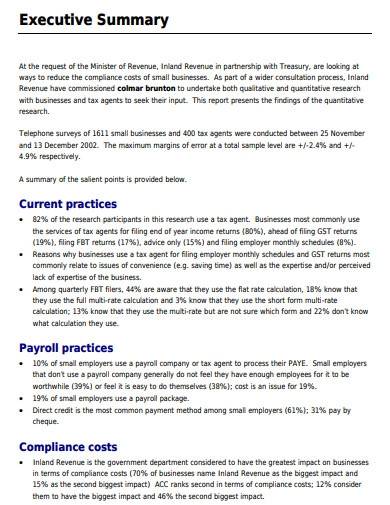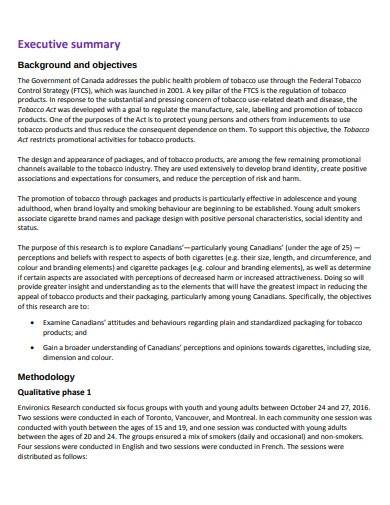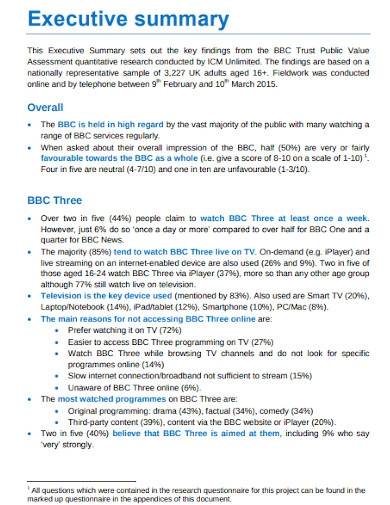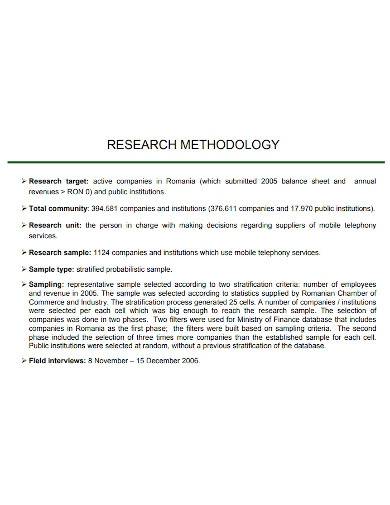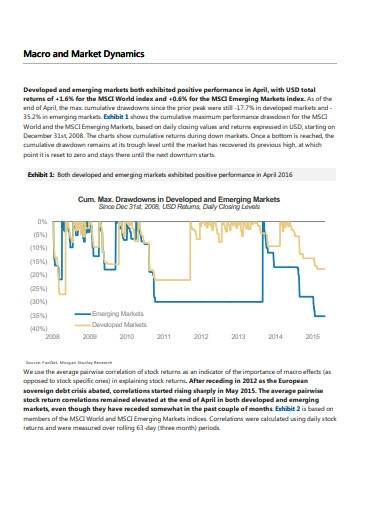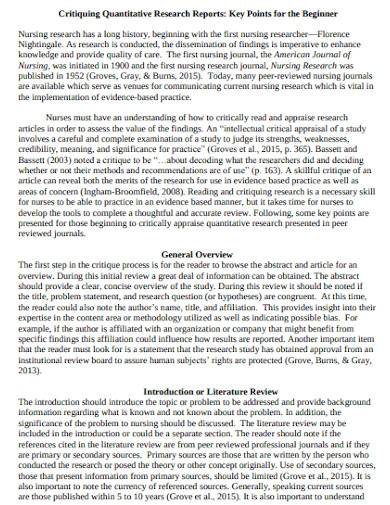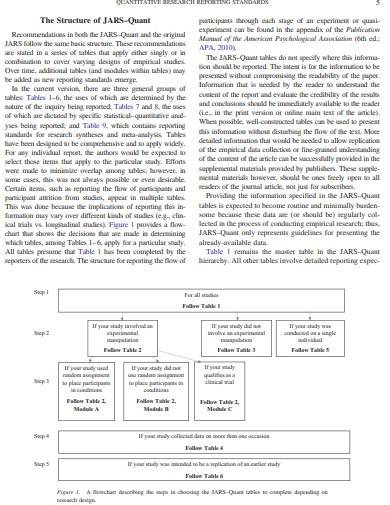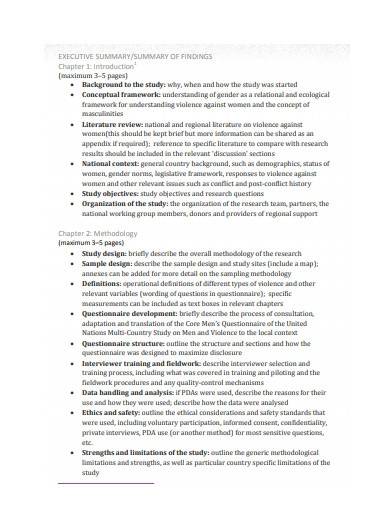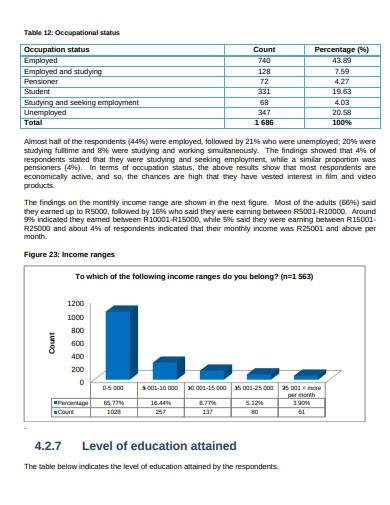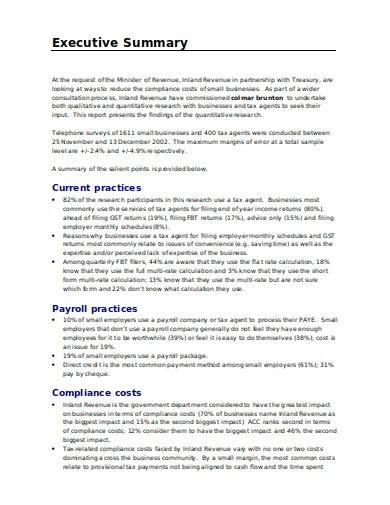According to an article from Chron, research is useful for businesses and organizations, especially in production, marketing, and financial practices. The research will help them predict trends in the marketplace, project sales, as well as identify potential problems and opportunities. Conducting research for business can be done in many ways, and one of the most appropriate ways is using quantitative research. This quantifies data into numbers that are easy to analyze, and it will be presented through a report, which is called a quantitative research report. In this article, you will be able to learn and understand the purpose of quantitative research, as well as the importance of using a quantitative research report. Scroll down below.
FREE 10+ Quantitative Research Report Samples & Templates
Here are some professionally written quantitative research report samples and templates preformatted in PDF and MS Word file formats. These sample templates contain pre-made suggestive content that you can use as a reference. These templates are also available for instant download. Check them out below!
1. Business Quantitative Research Report
2. Market Testing Report Template
3. Value Assessment Quantitative Research Report
4. Mobile Market Quantitative Research Report
5. Quantitative and Qualitative Research Report
6. Global Market Quantitative Research Report
7. Critiquing Quantitative Research Report
8. Quantitative Research Report Template
9. Quantitative Research Report Sample
10. Formal Quantitative Research Report
11. Standard Quantitative Research Report
What is a Quantitative Research Report?
Business research serves as an essential role in business. It allows management to determine opportunities and competitions in every aspect of the business. This enables a business to operate and function effectively and efficiently. There are different ways to conduct business research, and one of the most commonly used ones is quantitative research.
According to an article from Medium, quantitative research objectively tests or measures the behavior and attitude of the market that answers to a particular business market research objective. The data collected in this type of research are in numerical form, which is collected through surveys, questionnaires, etc. And the research data analysis and evaluation are presented through a quantitative research report.
A quantitative research report refers to a document that conveys and interprets the data collected during the quantitative research. In this, the quantitative research data are displayed and presented in diagrams, graphs, tables, etc. to make the information more accessible and understandable by the management.
How to Write a Quantitative Research Report
A quantitative research report is the end-result of quantitative research. It contains information regarding the research conducted. Writing a clear and accurate research analysis report for your quantitative research is necessary since it interprets important information. To help you with that, we have provided you some tips below. Here’s how.
1. Write the Introduction
Start making a quantitative research report by writing an introduction. The introduction must contain a summary of information about your research—an overview of the topic, the significance, objectives, and scope. The introduction must outline every important detail of your quantitative research.
2. Describe the Method Used
In this section, you have to place the method used in the research, which is quantitative. Provide a brief description of the quantitative research, as well as the reason why you chose that method. Also, point out the common data collection methods that you used, which are surveys, interviews, whether paper, online or phone, etc.
3. Present the Result
After the methodology, the next thing you need to do is to present your quantitative research results and findings. Since quantitative research entails numerical data, you have to use graphs, tables, diagrams, etc. in doing so. Whatever tool you use, as long as it shows the figures clearly. Also, provide a brief explanation of each finding.
4. State Your Conclusion
Start your conclusion with a brief statement of what the research is all about and its significance to your company. You may get some ideas from your introduction. However, refrain from repeating it word by word instead, paraphrase or summarize the main ideas of your research. Nevertheless, your conclusion must be a statement of your quantitative research and its findings.
5. Add Recommendations
Recommendations are present in every research, whether in academic research or business research. So, for your quantitative research report, you must also have recommendations. This area provides suggestions or assumptions that are based on the findings and conclusion of your research report. This is also the section where you give suggestions about some areas of the study that need further research.
FAQ’s
What are the four classifications of Quantitative Research?
There are four classifications of quantitative research that you can use in your business research. These classifications include descriptive, correlational, causal-comparative or quasi-experimental, and experimental research. Descriptive research describes the status of a currently identified variable, and correlational research determines the relationship between two or more variables. The causal-comparative or quasi-experimental research establishes cause and effect relationships among variables, and experimental research, which is called true experimentation that verifies the relationships of a group of variables using the scientific method.
What are the characteristics of Quantitative Research?
Quantitative research has several characteristics, which include that data are collected using structured research instruments, results are based on larger sample sizes, the research study can be repeated since it is reliable. This also includes the research study that uses tools, such as surveys, to gather data, and the data are gathered in the form of numbers that are presented using charts, figures, and statistics.
What is the difference between Quantitative and Qualitative Research?
The difference between quantitative and qualitative research is that quantitative research focuses on numerical data. It is used to quantify behaviors, opinions, etc. This research study specifies what is measured and how it is measured. On the other hand, qualitative research focuses on textual data. This research study is used to gain an in-depth understanding of the experiences, thoughts, opinions, and trends of an individual.
What are the different methods of Quantitative Research?
There are several methods that can be used in conducting quantitative research to gather data. These methods include interviews, probability sampling, observations, document reviews, surveys, and questionnaires. These quantitative research methods are commonly used by businesses and organizations and are proven effective in gathering accurate data.
A well-written quantitative business research report allows businesses to analyze business data and figures comprehensively. With the help of this, they will be able to generate information that will help them in decision-making, improve business operations, and form concrete marketing and business strategies for sustainability and success.
Related Posts
FREE 10+ Concurrent Validity Samples & Templates in MS Word | PDF
FREE 10+ Resource Tracking Samples & Templates in MS Word | PDF
FREE 4+ Clinical Case Study Samples & Templates in PDF
FREE 10+ Content Validity Samples & Templates in PDF
FREE 10+ Construct Validity Samples & Templates in MS Word | PDF
FREE 10+ Code of Human Research Ethics Samples & Templates in MS Word | PDF
FREE 10+ Biography Research Report Samples and Templates in PDF
FREE 10+ System Documentation Samples & Templates in MS Word | PDF
FREE 10+ Process Document Samples & Templates in MS Word | PDF
FREE 10+ Action Research Samples & Templates in PDF
FREE 10+ Longitudinal Research Samples & Templates in PDF | MS Word
FREE 10+ Causal Research Samples & Templates in MS Word | PDF
FREE 10+ Client Discovery Samples & Templates in MS Word | PDF
FREE 10+ Null Hypothesis Samples & Templates in MS Word | PDF
FREE 9+ Product Knowledge Samples & Templates in PDF

